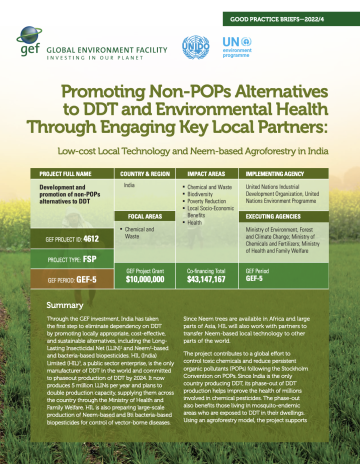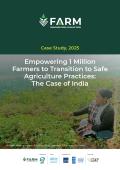
This resource presents insight from the GEF ID 4612 project Development and promotion of non-POPs alternatives to DDT, highlighting India's pioneering efforts to phase out DDT dependence. The project promotes locally appropriate, cost-effective, and sustainable alternatives, including Long-Lasting Insecticidal Nets (LLINs) and Neem-based and bacteria-based biopesticides. It details how HIL (India) Limited, the sole global DDT manufacturer, is transitioning to LLIN production and biopesticide development with plans for technology transfer to other regions.
The resource emphasizes the project's contribution to global POPs reduction under the Stockholm Convention, noting the significant health benefits of DDT phase-out for both chemical workers and populations in mosquito-endemic areas. It further describes the project's innovative agroforestry model, which supports Neem tree cultivation for biopesticide production while generating income for rural communities.
The document outlines the project's capacity-building efforts through integrated vector pest management (IVPM) training and its support for policy recommendations on DDT alternatives to the Indian government. It demonstrates how local partnerships can ensure the project's relevance, cost-effectiveness and sustainability, making it a valuable model for other countries seeking to transition away from DDT.


